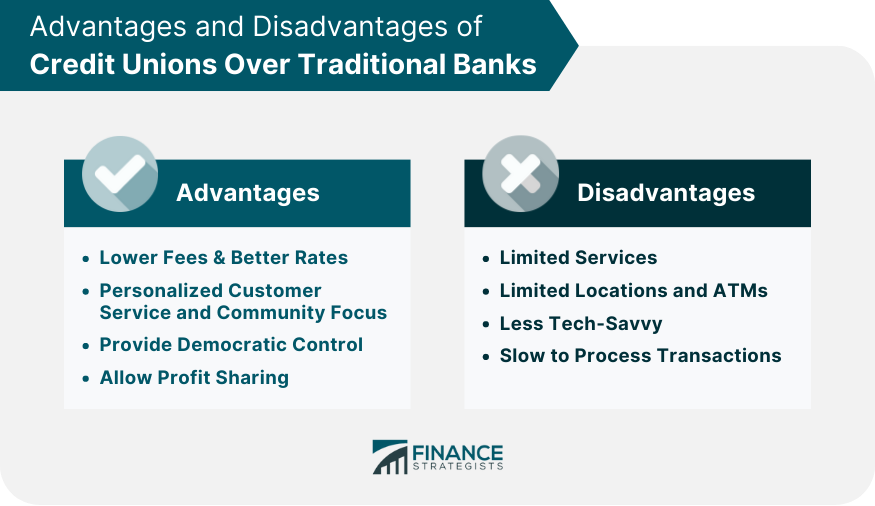Wyoming Credit: Your Local Source for Financial Safety And Security and Development
Wyoming Credit: Your Local Source for Financial Safety And Security and Development
Blog Article
Unlocking the Benefits of Lending Institution: Your Guide
In the world of economic institutions, cooperative credit union stand as a commonly underexplored and distinct choice for those seeking a more customized technique to banking. As we explore the intricacies of cooperative credit union, a globe of benefits and opportunities unfolds, using a look into an economic landscape where community values and member-focused services take spotlight. From their simple beginnings to their modern effect, recognizing the essence of lending institution could potentially reshape the method you view and handle your finances.

History of Credit Rating Unions
The concept of credit scores unions arised as a response to the economic needs of individuals that were underserved by typical financial institutions. Friedrich Wilhelm Raiffeisen, a German mayor, is typically attributed with establishing the initial modern-day credit rating union in the mid-1800s.
The idea of people integrating to pool their sources and offer economic help per other spread quickly throughout Europe and later to The United States and Canada. In 1909, the very first credit rating union in the United States was developed in New Hampshire, noting the beginning of a new era in community-focused banking. Because then, lending institution have actually continued to prioritize the financial well-being of their members over revenue, personifying the participating principles of self-help, self-responsibility, freedom, uniformity, equity, and equality.
Membership Eligibility Standards
Having developed a foundation rooted in cooperative principles and community-focused financial, debt unions maintain specific membership qualification criteria to make certain alignment with their core values and purposes. These standards frequently revolve around a common bond shared by potential members, which can include variables such as geographic area, company, organizational affiliation, or membership in a specific neighborhood or organization. By needing participants to satisfy certain eligibility demands, cooperative credit union intend to foster a sense of belonging and shared objective amongst their members, strengthening the participating nature of these banks.
In enhancement to typical bonds, some cooperative credit union may also prolong subscription qualification to member of the family of existing participants or individuals that stay in the exact same family. This inclusivity aids cooperative credit union broaden their reach while still staying true to their community-oriented values. By preserving transparent and clear membership standards, lending institution can guarantee that their members are actively engaged in sustaining the participating values and goals of the organization.
Financial Services And Products
When taking into consideration the variety of offerings readily available, debt unions supply a diverse variety of financial products and solutions tailored to satisfy the unique demands of their participants. These offerings typically include cost savings and checking accounts, car loans (such as automobile car loans, individual car loans, and home mortgages), charge card, and various financial investment alternatives. One crucial benefit of lending institution is their focus on supplying competitive rate of interest prices and reduced costs compared to traditional financial institutions. Members typically take advantage of customized client service, as lending institution focus on developing solid relationships with those they offer.
In addition, lending institution often provide financial education and therapy to assist members boost their monetary literacy and make informed choices. Several cooperative credit union likewise join shared branching networks, permitting participants to access their accounts at a variety of locations across the country. Overall, the range of financial services and products provided by debt unions emphasizes their commitment to meeting the diverse needs of their participants while prioritizing their monetary wellness.

Advantages Over Typical Banks
Showing a distinct method to economic solutions, credit unions offer numerous advantages over conventional financial institutions. One crucial advantage is that cooperative credit union are generally member-owned, implying that earnings are reinvested into the company to offer much better rates and lower fees for members. This cooperative structure typically leads to much more customized customer care, as credit history unions prioritize member fulfillment over making best use of revenues. Furthermore, cooperative credit union are recognized for their affordable interest rates on interest-bearing accounts, car loans, and credit rating cards. This can result in greater returns for members that obtain or conserve money through the lending institution contrasted to typical financial institutions.
Moreover, cooperative credit union tend to have a strong concentrate on economic education and learning and area assistance. Credit Union Cheyenne WY They frequently provide workshops and sources to help members enhance their monetary proficiency and make sound finance choices (Credit Union Cheyenne). By promoting a feeling of area and shared objectives, lending institution can develop an extra supportive and comprehensive banking setting for their members
Area Involvement and Social Influence

Furthermore, credit unions frequently companion with regional companies and charities to sustain various social causes such as affordable real estate, education, and healthcare. By collaborating with these entities, credit report unions can intensify their social influence and address vital issues affecting their neighborhoods. This joint approach not only benefits those in need however also reinforces the social material of the neighborhood by fostering a sense of unity and assistance among its members. In significance, lending institution act as stimulants for favorable change, driving neighborhood growth and social progress through their energetic involvement and impactful efforts.
Verdict
In conclusion, cooperative credit union have a rich history rooted in community and teamwork, supplying a diverse variety of monetary services and products with affordable rates and individualized customer care. They prioritize the economic wellness of their participants over profit, cultivating a feeling of belonging and supplying financial education and learning. By proactively taking part in social impact efforts, credit scores unions create a encouraging and inclusive financial setting that makes a favorable difference in both private lives and areas.
Friedrich Wilhelm Raiffeisen, a German mayor, is typically attributed with establishing the first modern-day credit rating union in the mid-1800s - Credit Union Cheyenne WY. By calling for members to fulfill certain qualification needs, credit rating unions aim to foster a feeling of belonging and shared purpose amongst their members, enhancing the participating nature of these financial establishments
Furthermore, credit unions often supply economic education and learning and counseling to aid members enhance their financial proficiency and make educated decisions. Overall, the variety of financial products and solutions offered by credit score unions highlights their dedication to meeting the diverse needs of their members while prioritizing their monetary health.
Additionally, credit unions are recognized for their competitive rate of interest rates on savings accounts, car loans, and credit scores cards.
Report this page